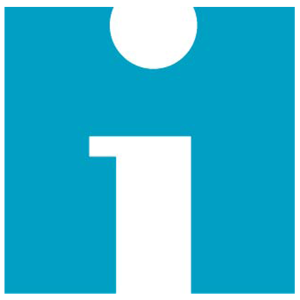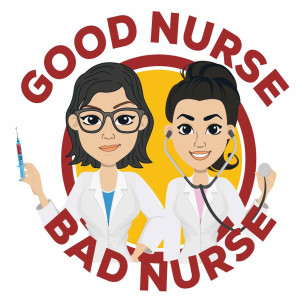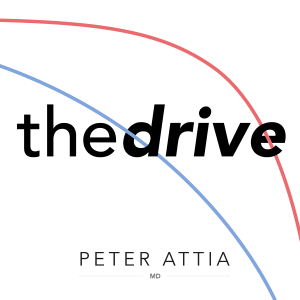
WIHI - A Podcast from the Institute for Healthcare Improvement
Health & Fitness:Medicine
Date: August 9, 2012
Featuring:
- Victor Montori, MD, MSc, Director, Mayo Clinic Healthcare Delivery Research Program; Professor of Medicine, Mayo Clinic.
- Nilay Shah, PhD, Assistant Professor of Health Services Research, Mayo Clinic
- Dr. Montori will be offering a Special Interest Keynote on Minimally Disruptive Medicine on December 11, 2012, at IHI’s National Forum.
One of the most common phrases used to describe patients who are not taking their prescribed medications or following up on the recommendations of their health care providers is “non-compliant.” What if we viewed the behavior as an act of civil disobedience instead?
This provocative notion definitely got the attention of health professionals in the audience at IHI’s 13th Annual Summit on Improving Patient Care in the Office Practice and the Community (March 18-20, 2012). It’s the thinking of Dr. Victor Montori, a diabetologist and researcher at Mayo Clinic whose keynote remarks at the gathering were, in part, intended to shake up common and sometimes negative assumptions about patients with chronic diseases who don’t seem to be holding up their half of the bargain. Dr. Montori invites all of us to consider the work of being a chronically ill patient, and the burden of increased expectations to follow regimens that don’t easily fit into a patient’s daily life, social circumstances, preferences, and more.
What’s the alternative? Dr. Montori and colleagues call it “minimally disruptive medicine,” and WIHI invites you to learn more about this change of mindset and approach to chronic disease and what it can look like in practice. Host Madge Kaplan and Dr. Montori are joined by Nilay Shah, a health services researcher at Mayo Clinic. Both Drs. Shah and Montori argue that with the growth of patient-centered medical homes and numerous other initiatives that assume a greater role for patients and family members in managing chronic conditions, it’s a critical moment to examine what added workload this implies. The two argue that some of the burden on patients can be reduced if approaches to care are married with efforts to reduce unnecessary and costly over-treatment.
Think of it this way, says Dr. Montori: So-called “non-compliance” is actually an alarm system for a health care system that’s failing patients. The goal needs to be shifting and sharing responsibility for chronic disease with patients and families — not shifting the burden.
To learn a bit more about minimally disruptive medicine, check out the story of Susan and John.
More Episodes
WIHI: Success at the Right Speed: Learning from Toyota
 2017-06-27
2017-06-27
WIHI: The Meaningful Methodology of Patient- and Family-Centered Care
 2017-06-27
2017-06-27
WIHI: Momentum for Maternity of the Safest Kind
 2017-06-27
2017-06-27
WIHI: The Next Wave of Reform for Medical Education
 2017-06-27
2017-06-27
WIHI: The Health Care Tune-Up Show! Leading with Logic and Emotion
 2017-06-27
2017-06-27
WIHI: Message to Managers: Crises Happen. Plan Ahead!
 2017-06-27
2017-06-27
WIHI: Tipping the Scales: Fresh Ideas to Combat Obesity
 2017-06-27
2017-06-27
WIHI: Adverse Events and Their Aftermath: SOS from Clinicians
 2017-06-27
2017-06-27
WIHI: Gimme Housing, Not the ED: A New Campaign for Housing the Homeless
 2017-06-27
2017-06-27
WIHI: Patient Safety Officer: One Person’s Title, Everyone’s Responsibility
 2017-06-27
2017-06-27
WIHI: OpenNotes and the Electronic Medical Record
 2017-06-27
2017-06-27
WIHI: All Hospitals in Favor of Saving Money: Say “Patient Flow!”
 2017-06-27
2017-06-27
WIHI: Getting Down to Business…and Health Care Reform
 2017-06-27
2017-06-27
WIHI: New Ways to Reduce Diagnosis Errors
 2017-06-27
2017-06-27
WIHI: The Future of Nursing
 2017-06-27
2017-06-27
WIHI: Quality Care During Advanced Illness: What Do Patients Want That Works?
 2017-06-27
2017-06-27
WIHI: Run, Don’t Walk! The Urgent Need for Patient Safety
 2017-06-27
2017-06-27
WIHI: Reducing Avoidable Visits to the Emergency Department
 2017-06-27
2017-06-27
WIHI: The Medical Home
 2017-06-27
2017-06-27
WIHI: Next Waves of Health Care Reform
 2017-06-27
2017-06-27
Create your
podcast in
minutes
- Full-featured podcast site
- Unlimited storage and bandwidth
- Comprehensive podcast stats
- Distribute to Apple Podcasts, Spotify, and more
- Make money with your podcast
It is Free
You may also like

Good Nurse Bad Nurse


The Relaxback UK Show


On Call With Dr. Anselm Anyoha


The Peter Attia Drive


The Doctor’s Farmacy with Mark Hyman, M.D.


- Privacy Policy
- Cookie Policy
- Terms of Use
- Consent Preferences
- Copyright © 2015-2024 Podbean.com


 iOS
iOS Android
Android